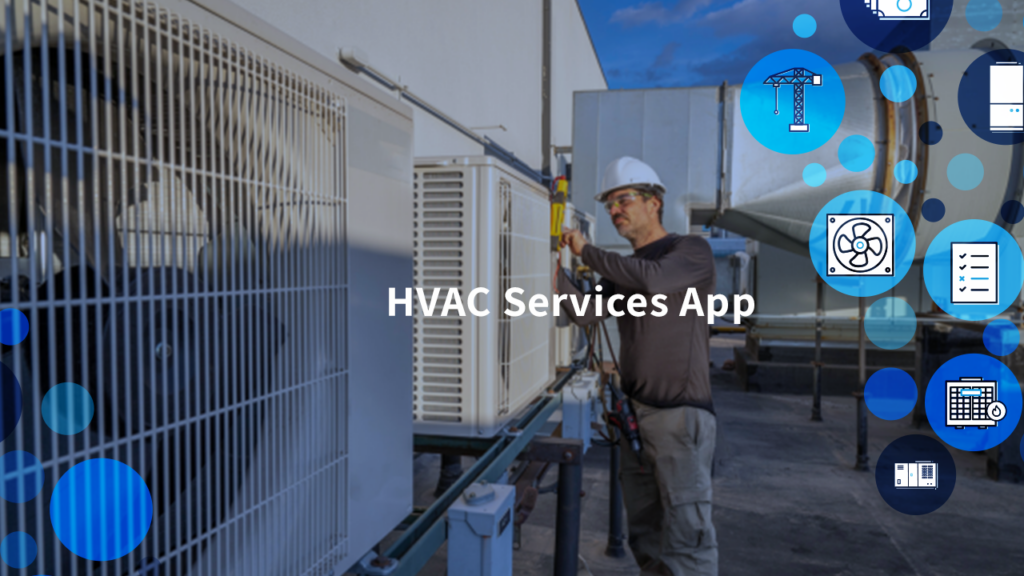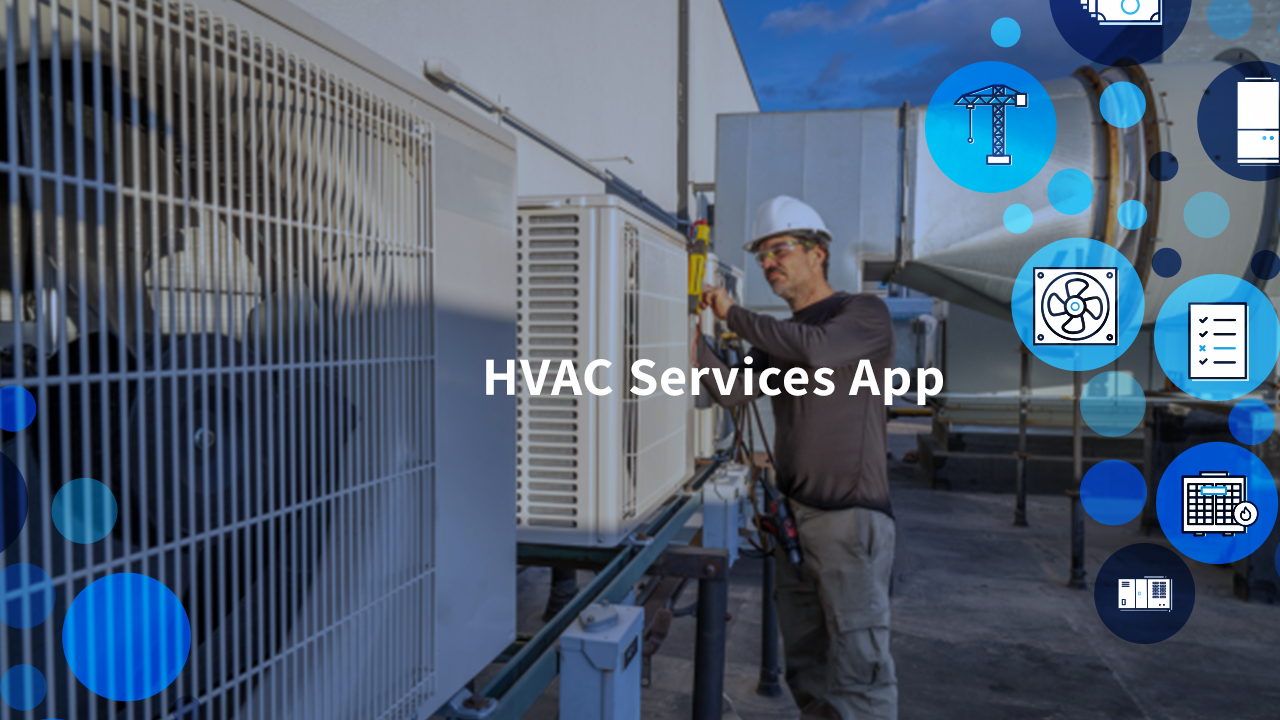
Introduction
Heating, Ventilation, and Air Conditioning (HVAC) businesses require efficient management systems to handle their operations smoothly. For small businesses, adopting the right HVAC software can significantly enhance productivity, improve customer service, and streamline various business processes. This article explores the best HVAC software options available for small businesses, highlighting their features, benefits, and factors to consider when selecting the most suitable solution.
Understanding HVAC Software
What is HVAC Software?
HVAC software is a specialized tool designed to help HVAC contractors manage their operations. This software typically includes features for scheduling, dispatching, invoicing, customer management, and more. By automating and organizing these tasks, HVAC software helps businesses run more efficiently, reduce errors, and improve customer satisfaction.
Importance of HVAC Software for Small Businesses
For small HVAC businesses, managing day-to-day operations manually can be overwhelming and time-consuming. HVAC software alleviates these challenges by providing a centralized platform to manage all aspects of the business. This not only saves time and reduces administrative burden but also helps small businesses grow by improving service delivery and customer management.
Key Features of HVAC Software
Scheduling and Dispatching
One of the primary features of HVAC software is scheduling and dispatching. This feature allows businesses to assign jobs to technicians, track their locations, and manage their schedules efficiently. Real-time updates ensure that technicians receive the most up-to-date information, reducing downtime and improving response times.
Customer Management
Customer management features help businesses keep track of customer interactions, service history, and preferences. This information is crucial for providing personalized service, addressing customer needs promptly, and building long-term relationships.
Invoicing and Payment Processing
Invoicing and payment processing features streamline the billing process. HVAC software can generate invoices, send them to customers, and track payments. Some software solutions also integrate with payment gateways, allowing customers to pay online, which improves cash flow and reduces the time spent on manual invoicing.
Inventory Management
Inventory management features help businesses keep track of parts and supplies. This ensures that technicians have the necessary materials for their jobs, reducing delays and improving service efficiency. Automated inventory tracking also helps prevent overstocking or stockouts.
Reporting and Analytics
Reporting and analytics features provide valuable insights into business performance. HVAC software can generate reports on various metrics, such as job completion times, technician productivity, and customer satisfaction. These insights help business owners make informed decisions and identify areas for improvement.
Mobile Access
Mobile access is essential for HVAC businesses, as technicians often work in the field. HVAC software with mobile capabilities allows technicians to access schedules, update job statuses, and communicate with the office from their mobile devices. This ensures seamless communication and real-time updates.
Top HVAC Software for Small Businesses
1. ServiceTitan
Features
ServiceTitan is a comprehensive HVAC software solution that offers a wide range of features, including scheduling and dispatching, customer management, invoicing, and reporting. It also includes a mobile app for field technicians, which allows them to access job details, update statuses, and communicate with the office in real-time.
Benefits
ServiceTitan is known for its user-friendly interface and robust functionality. It helps small businesses improve efficiency, reduce errors, and enhance customer service. The software’s advanced reporting features provide valuable insights into business performance, helping owners make informed decisions.
Pricing
ServiceTitan’s pricing is customized based on the specific needs of each business. Interested businesses can contact ServiceTitan for a personalized quote.
2. Housecall Pro
Features
Housecall Pro offers features such as online booking, scheduling, dispatching, invoicing, and payment processing. It also includes a customer management system that tracks service history and customer preferences. The software’s mobile app allows technicians to access job details and update statuses from the field.
Benefits
Housecall Pro is known for its ease of use and affordability. It helps small businesses streamline their operations, improve customer communication, and increase revenue. The software’s online booking feature allows customers to book services directly from the business’s website, which enhances convenience and customer satisfaction.
Pricing
Housecall Pro offers several pricing plans, starting with a basic plan for small businesses. Pricing details are available on the Housecall Pro website, and businesses can choose a plan that fits their needs and budget.
3. Jobber
Features
Jobber provides features such as scheduling, dispatching, invoicing, and customer management. It also includes a CRM system that tracks customer interactions and service history. Jobber’s mobile app allows technicians to access schedules, update job statuses, and communicate with the office from the field.
Benefits
Jobber is known for its flexibility and scalability. It helps small businesses manage their operations efficiently, improve customer service, and grow their business. The software’s reporting features provide valuable insights into business performance, helping owners make data-driven decisions.
Pricing
Jobber offers several pricing plans, with a starting plan designed for small businesses. Pricing details are available on the Jobber website, and businesses can choose a plan that fits their needs and budget.
4. Service Fusion
Features
Service Fusion offers features such as scheduling, dispatching, invoicing, and payment processing. It also includes a customer management system that tracks service history and customer preferences. The software’s mobile app allows technicians to access job details and update statuses from the field.
Benefits
Service Fusion is known for its affordability and ease of use. It helps small businesses streamline their operations, improve customer communication, and increase revenue. The software’s reporting features provide valuable insights into business performance, helping owners make informed decisions.
Pricing
Service Fusion offers several pricing plans, starting with a basic plan for small businesses. Pricing details are available on the Service Fusion website, and businesses can choose a plan that fits their needs and budget.
5. FieldEdge
Features
FieldEdge provides features such as scheduling, dispatching, invoicing, and customer management. It also includes a CRM system that tracks customer interactions and service history. FieldEdge’s mobile app allows technicians to access schedules, update job statuses, and communicate with the office from the field.
Benefits
FieldEdge is known for its robust functionality and ease of use. It helps small businesses manage their operations efficiently, improve customer service, and grow their business. The software’s reporting features provide valuable insights into business performance, helping owners make data-driven decisions.
Pricing
FieldEdge’s pricing is customized based on the specific needs of each business. Interested businesses can contact FieldEdge for a personalized quote.
Factors to Consider When Choosing HVAC Software
Business Needs
The first step in choosing HVAC software is to assess your business needs. Consider the specific features and functionalities that are most important to your operations. For example, if you need robust scheduling and dispatching capabilities, prioritize software solutions that excel in these areas.
Ease of Use
Ease of use is a critical factor, especially for small businesses with limited IT resources. Choose software with an intuitive interface that is easy to navigate. This will reduce the learning curve for your team and ensure that the software is adopted quickly and effectively.
Integration Capabilities
Integration capabilities are important if you use other software systems for accounting, customer relationship management (CRM), or inventory management. Choose HVAC software that can integrate seamlessly with your existing systems to streamline operations and reduce data entry.
Mobile Access
Mobile access is essential for field technicians. Ensure that the HVAC software you choose includes a mobile app that allows technicians to access job details, update statuses, and communicate with the office from the field. This will improve communication and ensure real-time updates.
Customer Support
Reliable customer support is crucial for any software solution. Choose an HVAC software provider that offers comprehensive customer support, including phone, email, and live chat options. This will ensure that you receive timely assistance if any issues arise.
Cost
Cost is a significant consideration for small businesses. Evaluate the total cost of ownership, including software licenses, implementation fees, and ongoing maintenance costs. Choose a software solution that offers a good balance between cost and functionality.
Implementing HVAC Software
Planning and Preparation
Successful implementation of HVAC software requires careful planning and preparation. Start by defining your objectives and setting clear goals for the implementation. This will help ensure that the software meets your business needs and delivers the desired benefits.
Data Migration
Data migration involves transferring existing data from your current systems to the new HVAC software. This can be a complex process, so it’s important to plan carefully and ensure that data is accurate and up-to-date before migration.
Training
Training is essential to ensure that your team can effectively use the new HVAC software. Provide comprehensive training to all users, including field technicians and office staff. This will help ensure a smooth transition and maximize the benefits of the software.
Testing
Before fully deploying the HVAC software, conduct thorough testing to ensure that it functions as expected and meets your business needs. This includes testing all features and functionalities, as well as integration with existing systems.
Go-Live
Once testing is complete and any issues have been resolved, you can go live with the new HVAC software. Monitor the implementation closely during the initial phase to ensure that everything runs smoothly and address any issues promptly.
Conclusion
Choosing the best HVAC software for your small business is a crucial decision that can significantly impact your operations and growth. By understanding the key features, benefits, and factors to consider, you can select the most suitable software solution for your needs. Whether you opt for ServiceTitan, Housecall Pro, Jobber, Service Fusion, or FieldEdge, the right HVAC software will help you streamline your operations, improve customer service, and drive business growth. With careful planning and implementation, you can maximize the benefits of HVAC software and position your business for long-term success.
